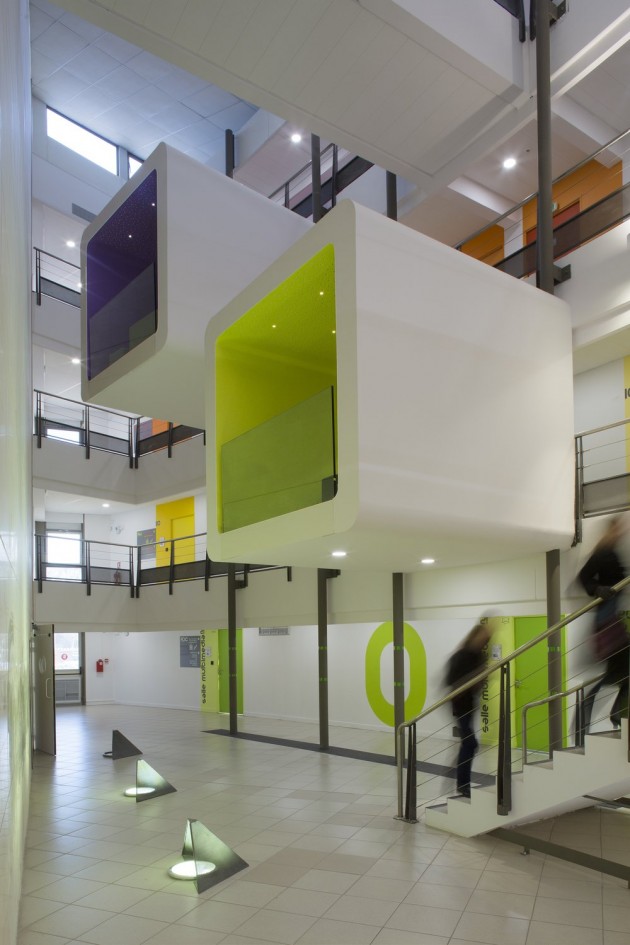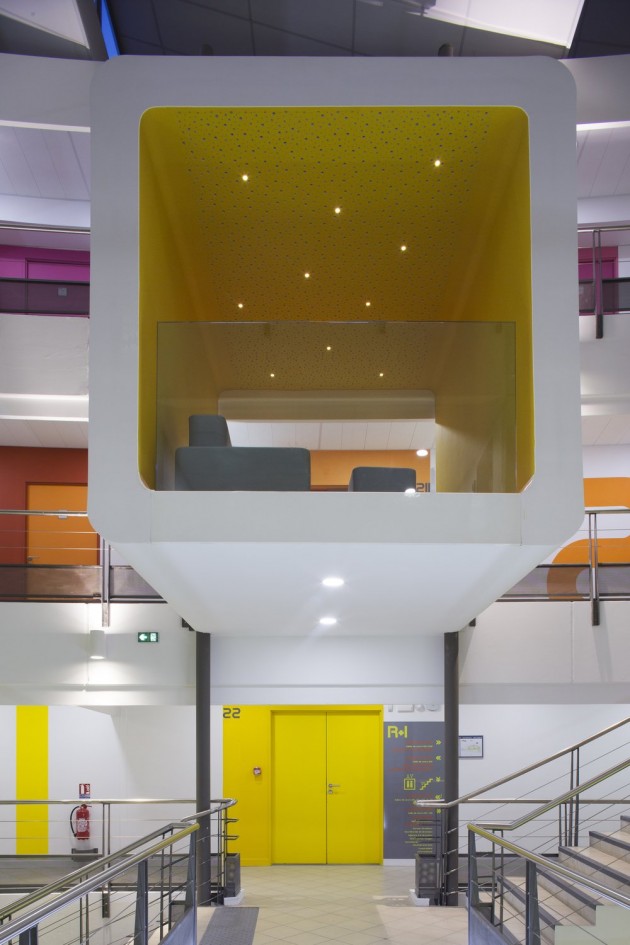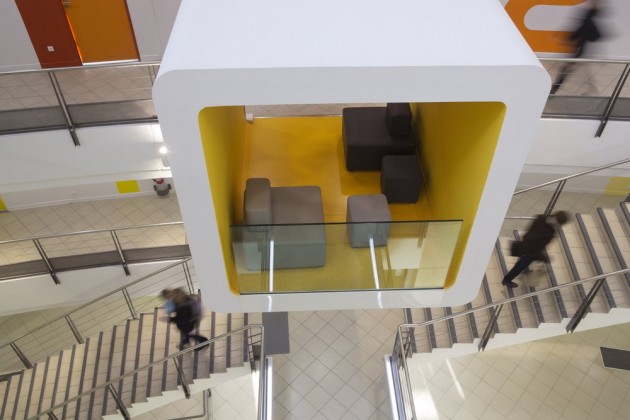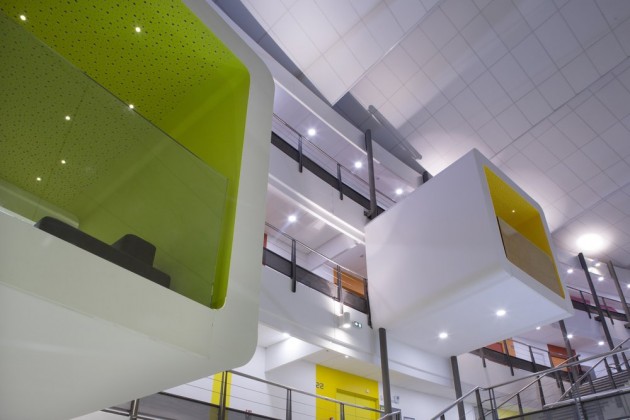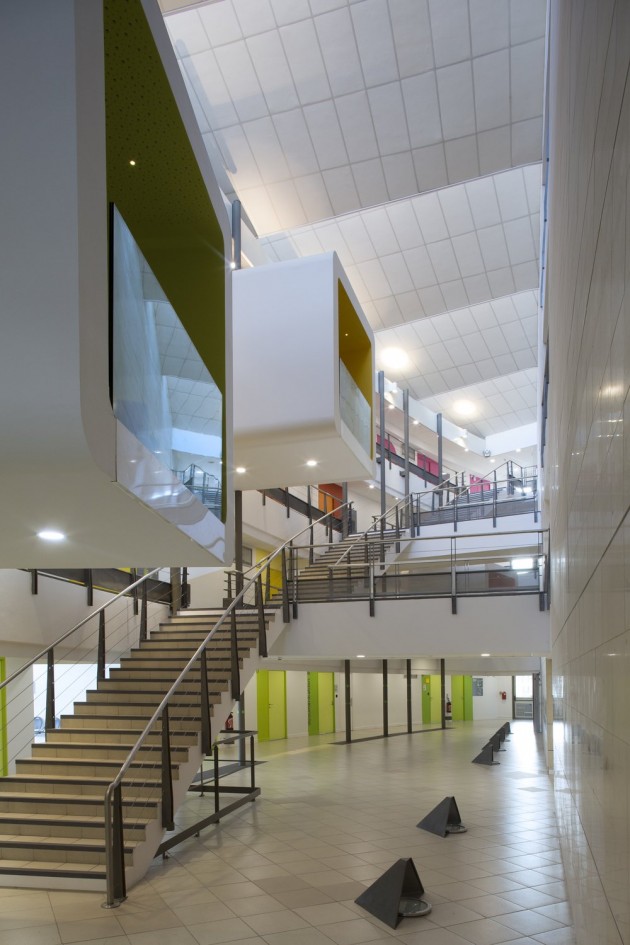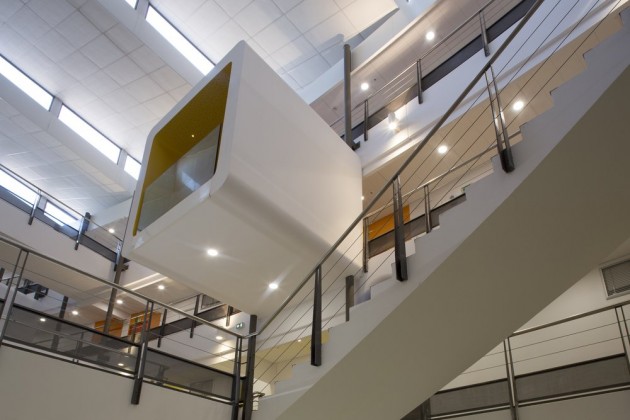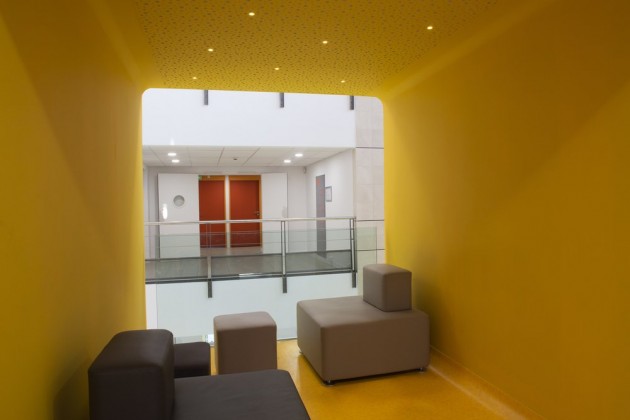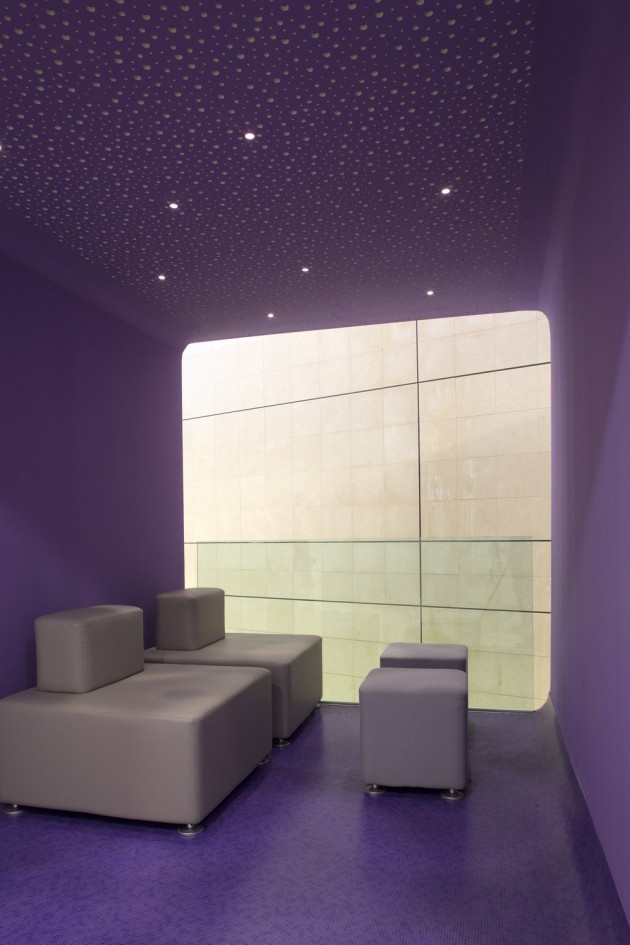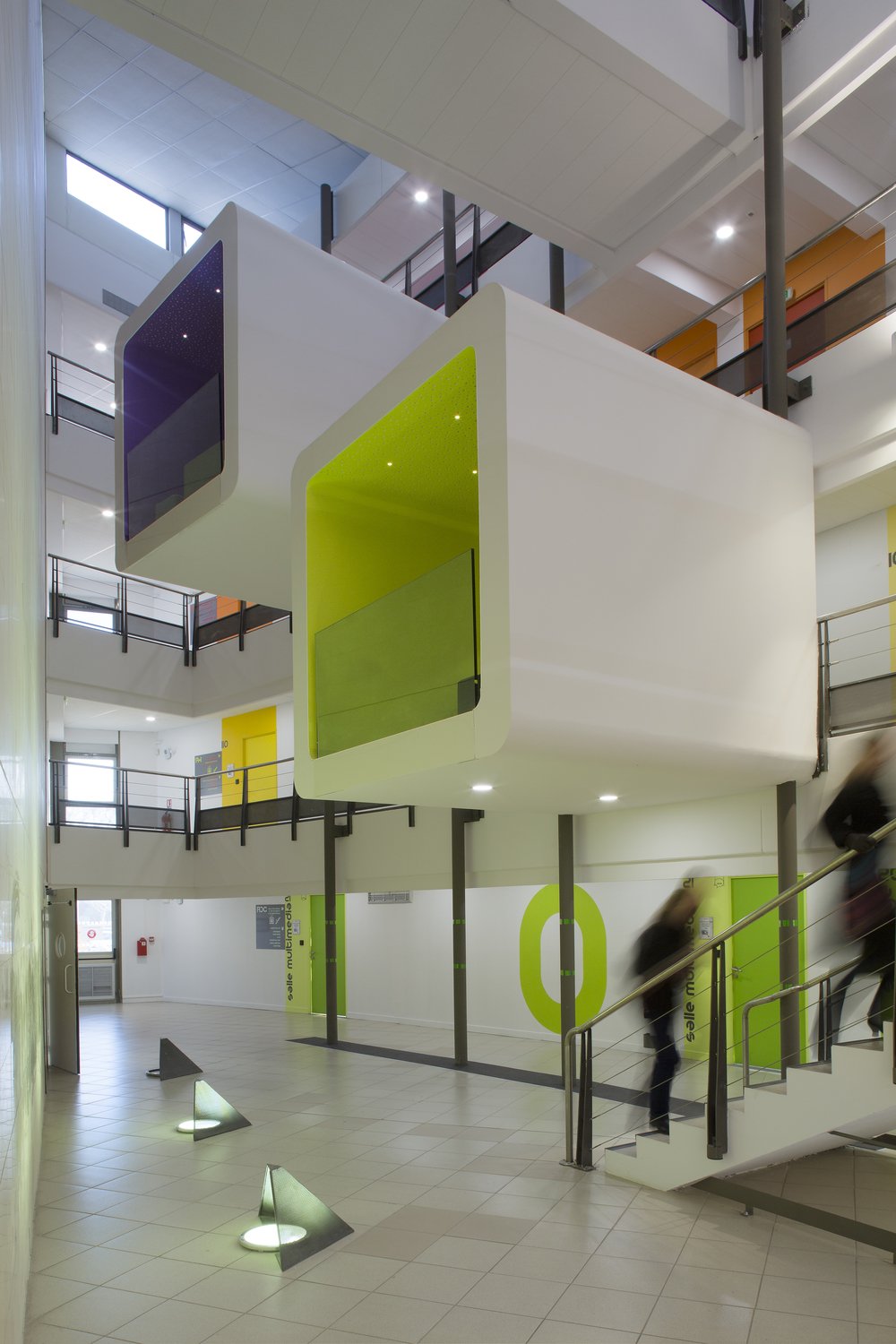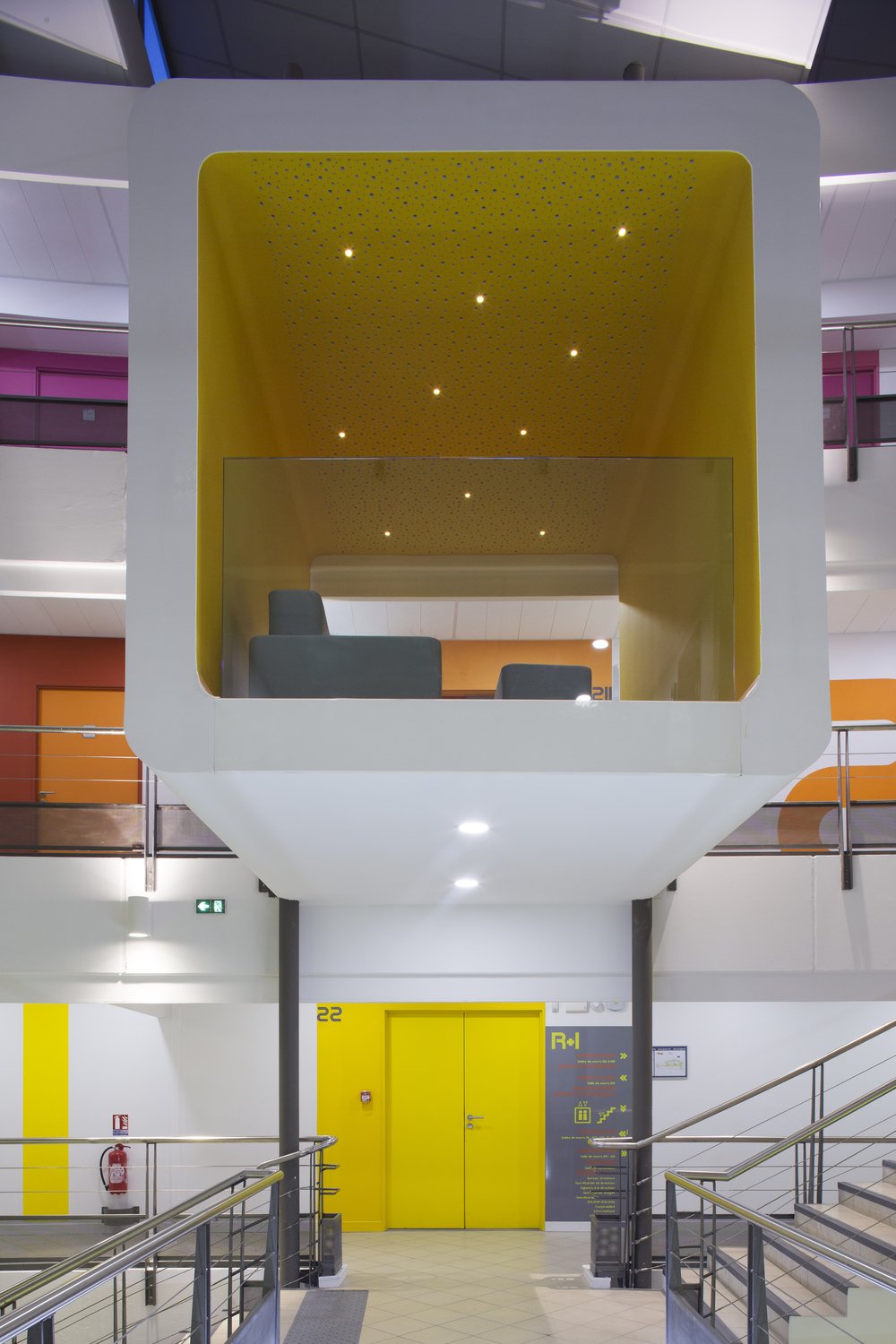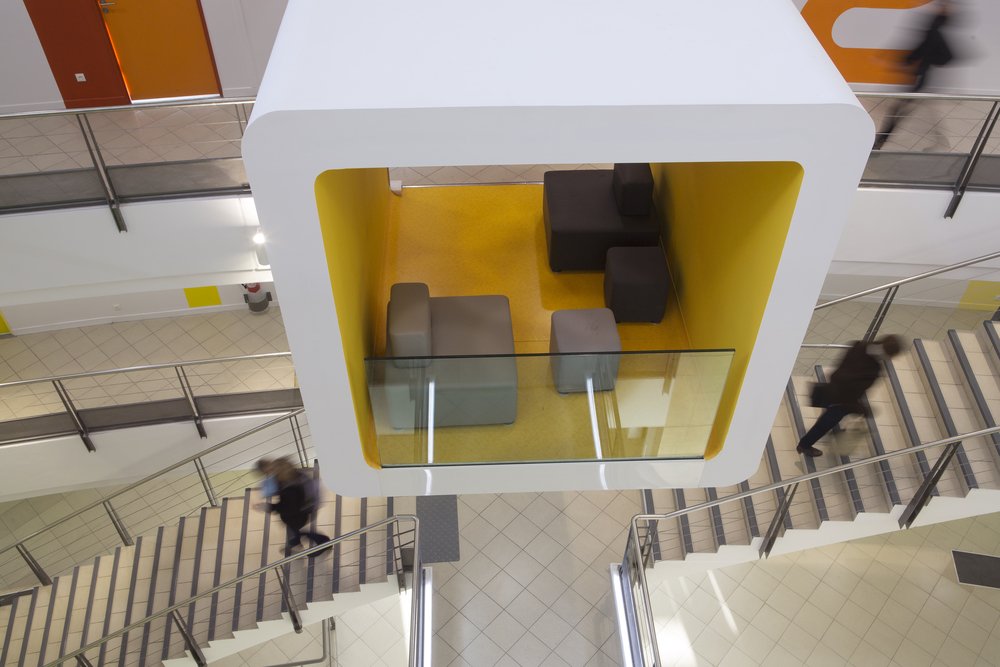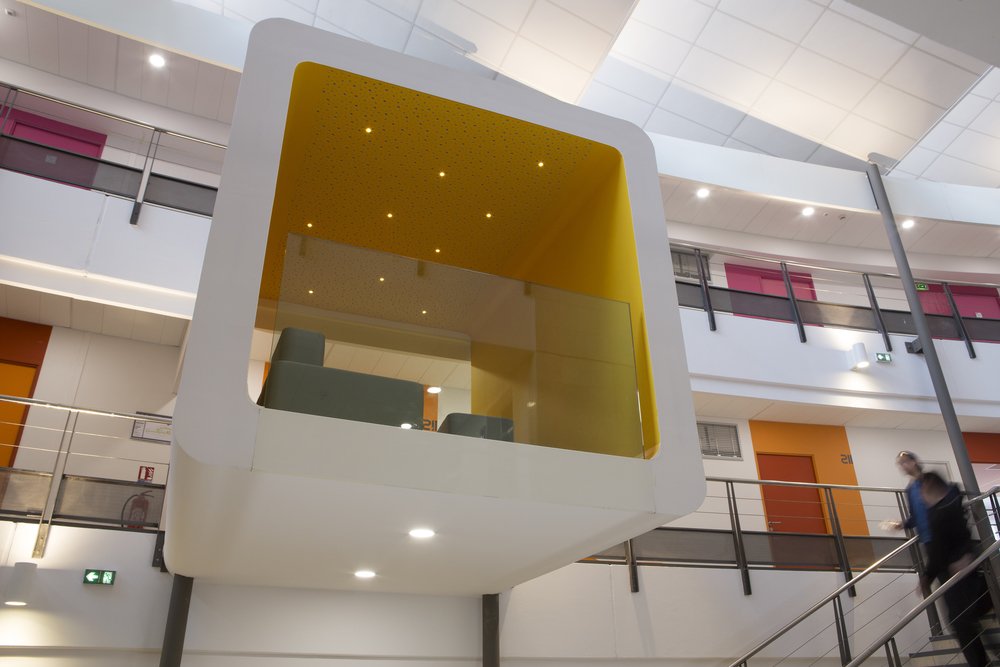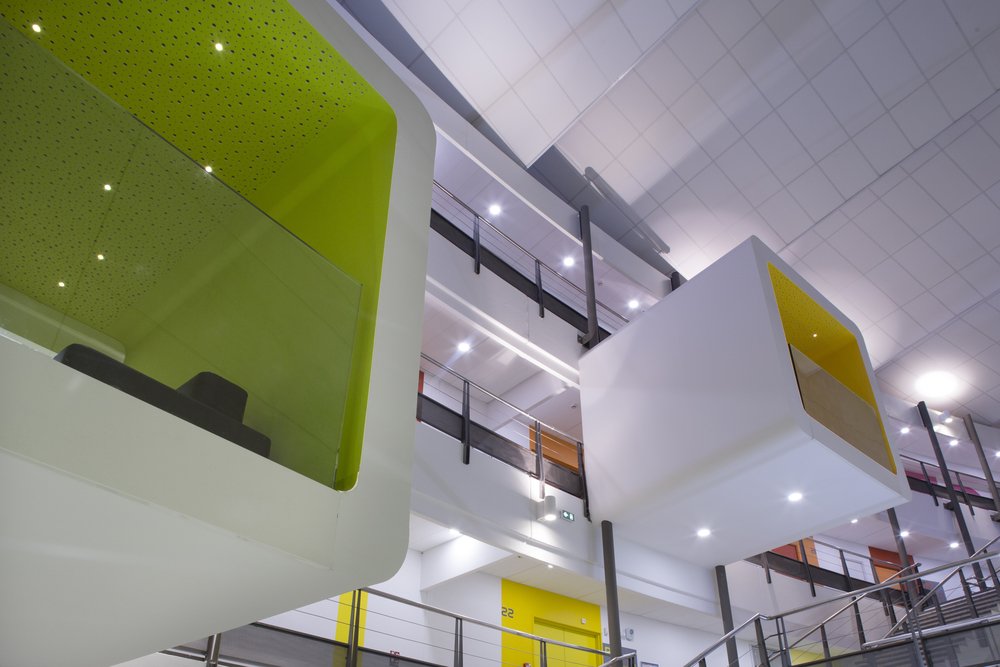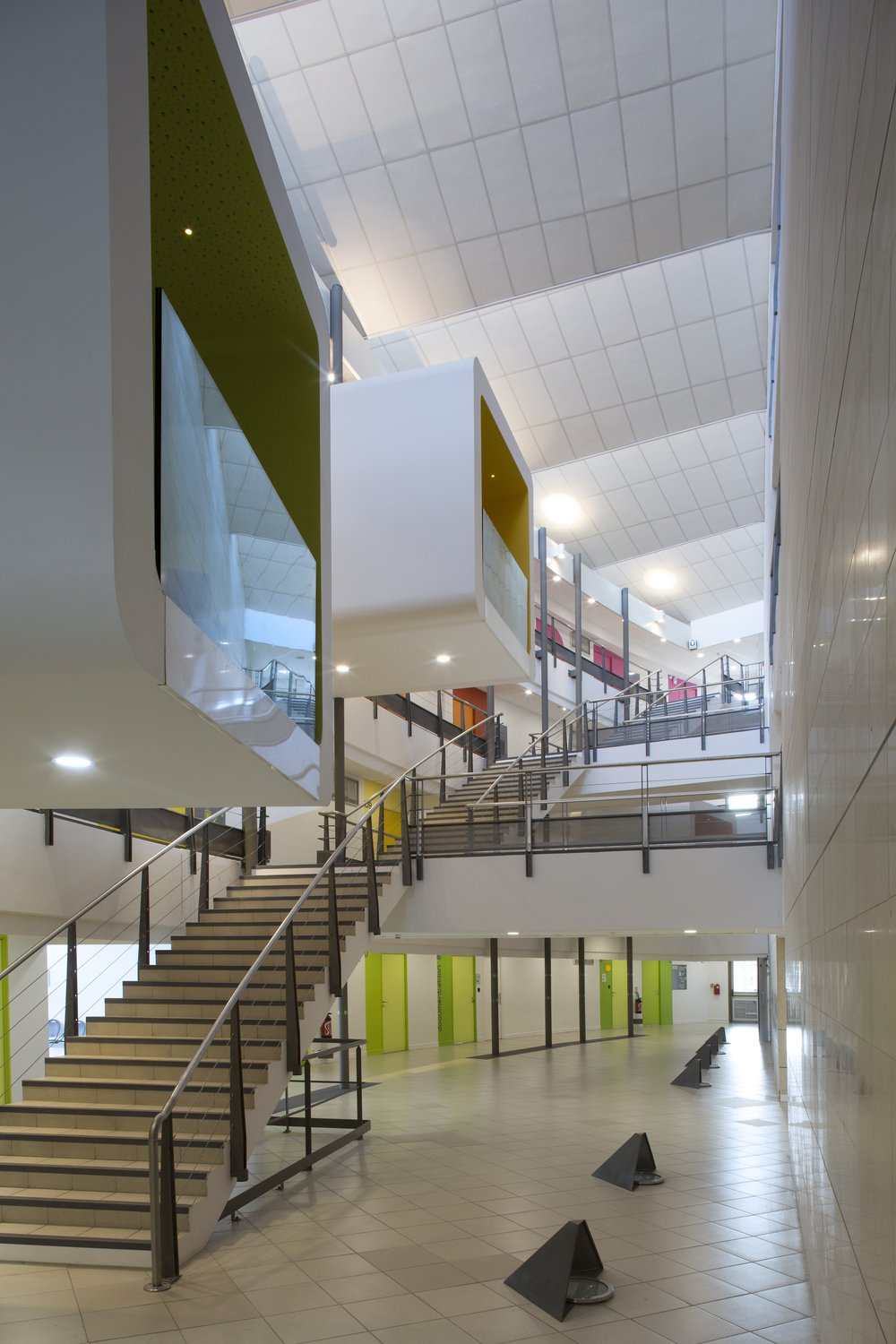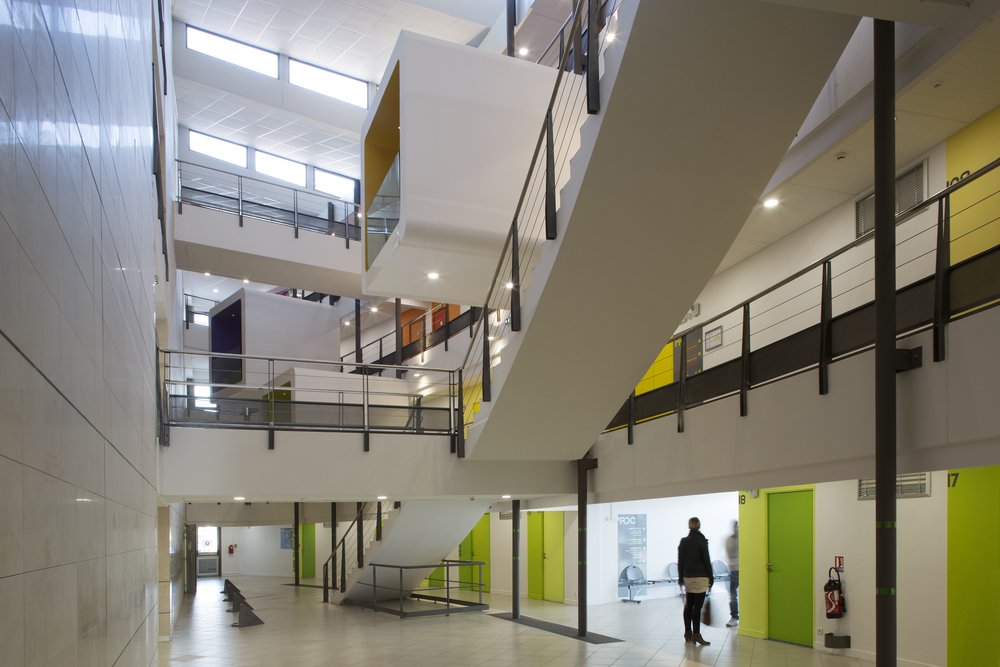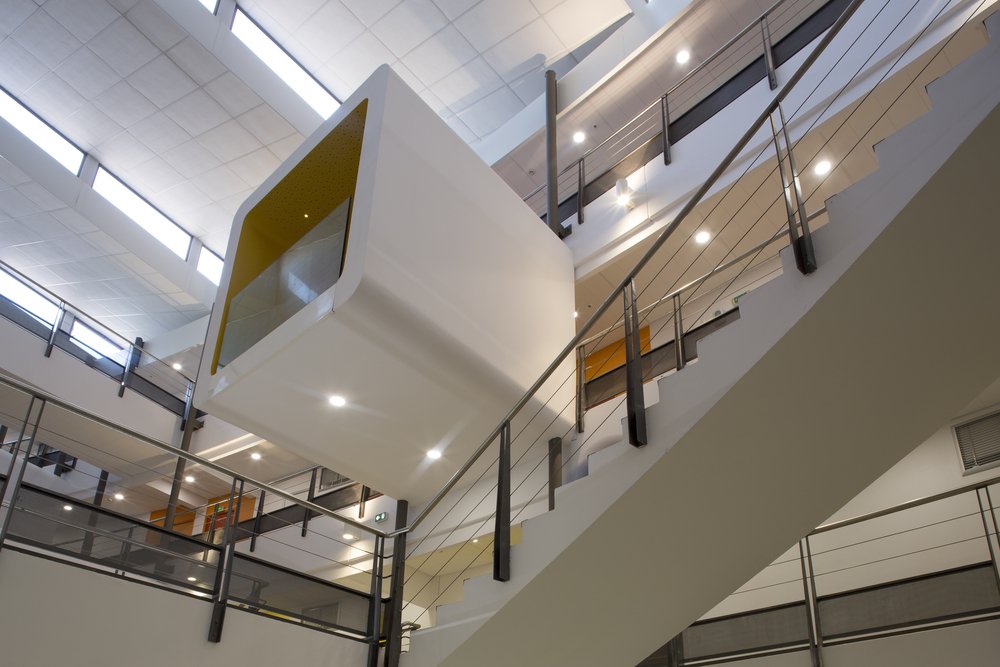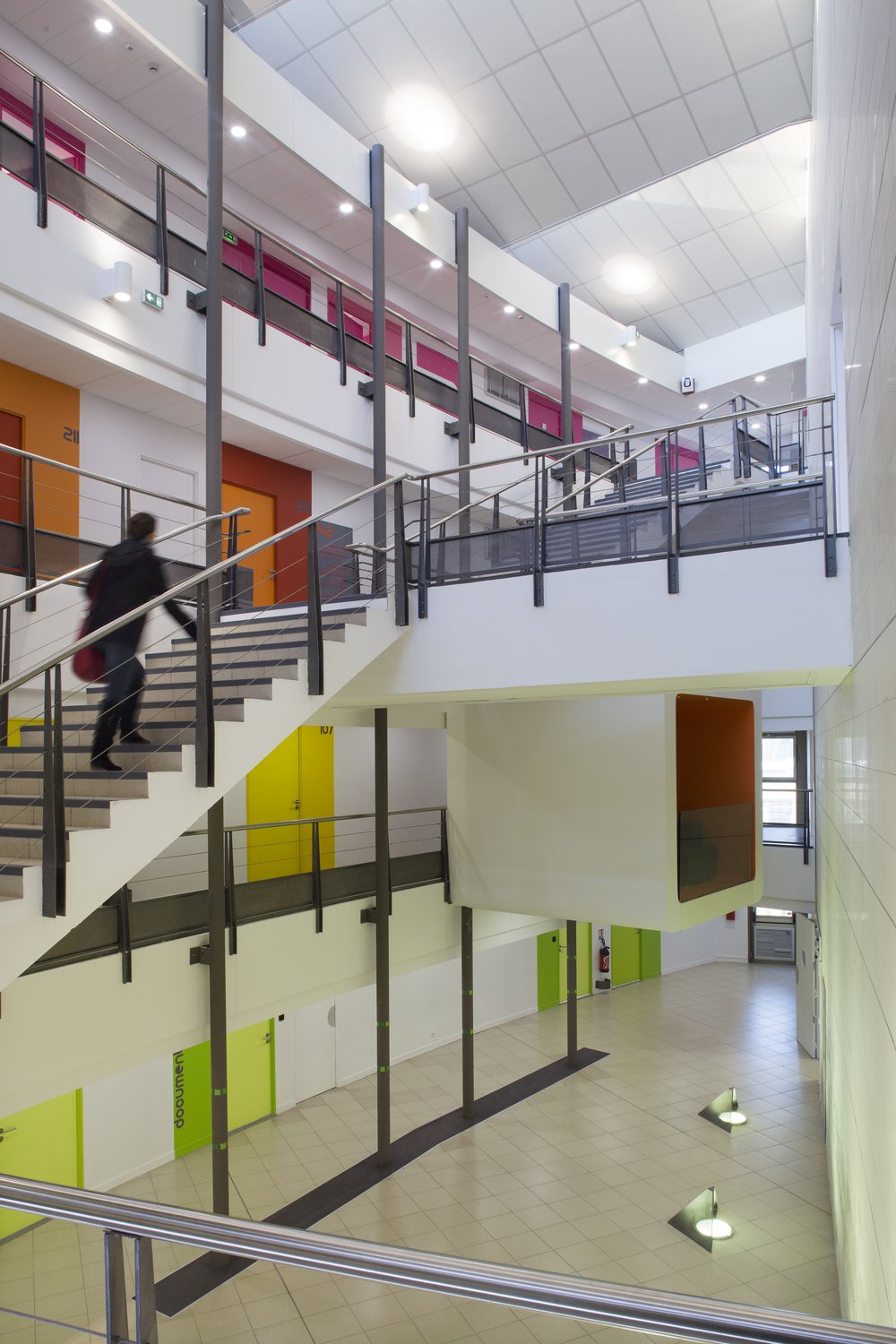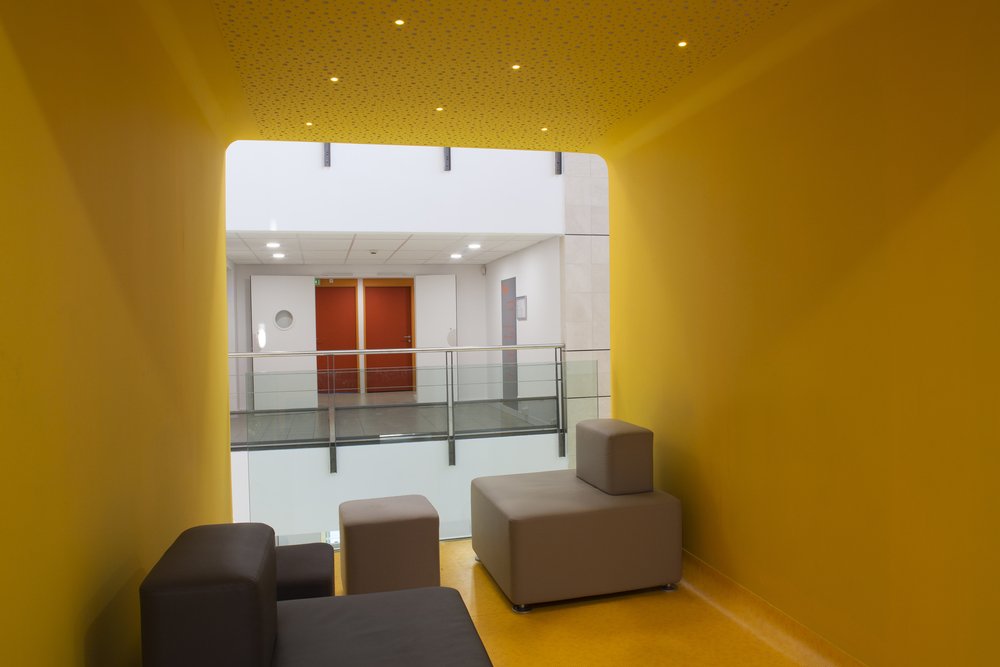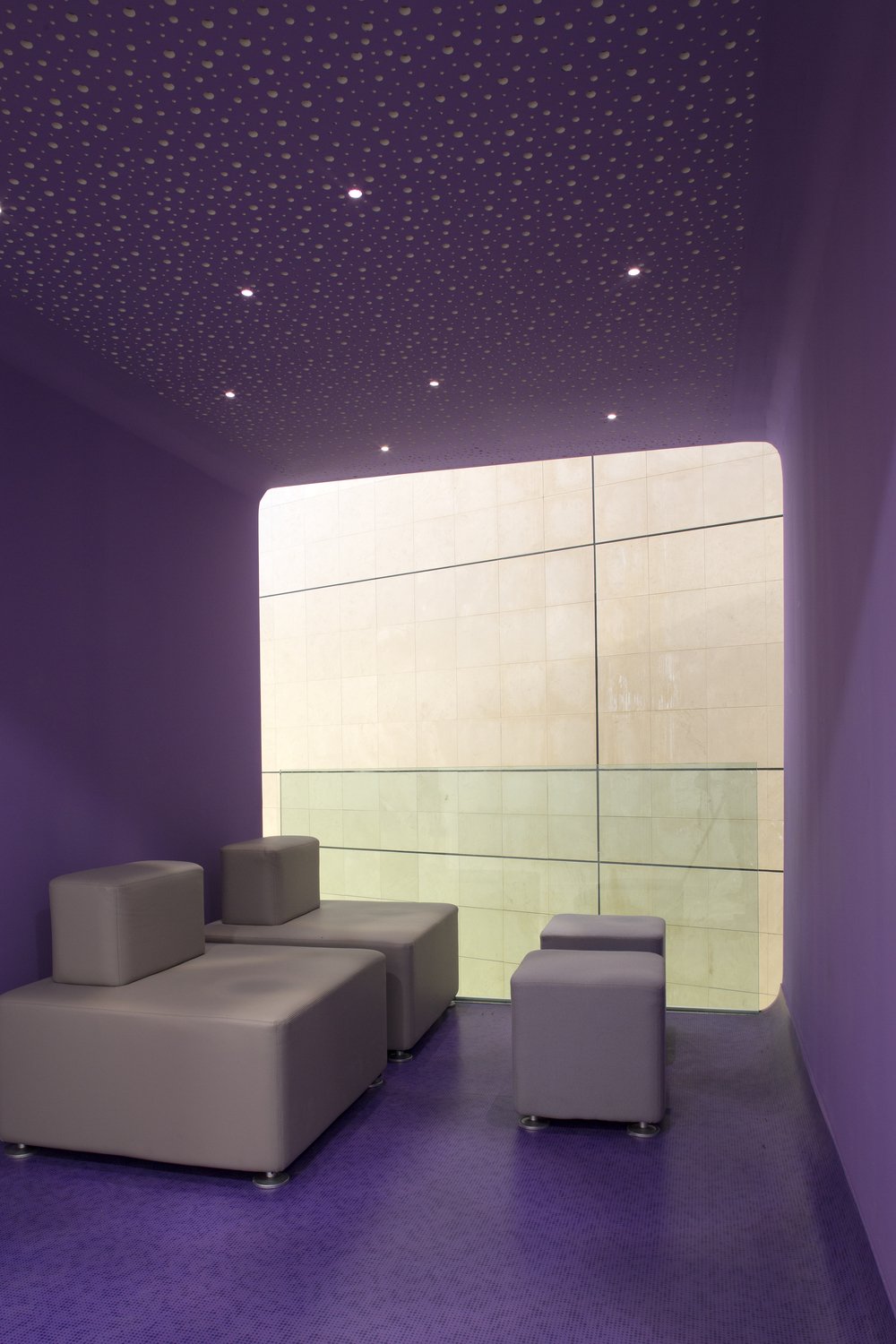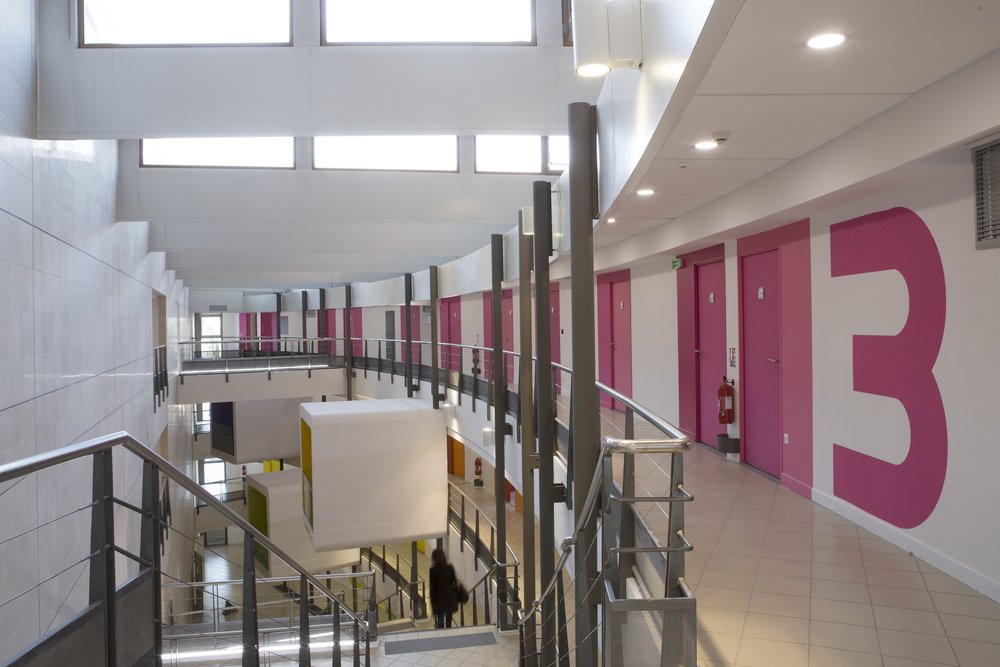NBJ Architectes have completed the interior renovation of GIPES, the Institut de Formation des Professionnels de la Santé in Avignon, France.
Project description
The project is an interior renovation of an existing building and seeks to establish a coherent whole operation by adapting the program to the needs and uses of new users. The intervention is essentially a reorganization of interior spaces, limiting interventions on buildings and ensuring optimization of quality and comfort of use. The general principles of circulation of the old building are maintained and adapted to the standards required by the change of destination.
To provide a spatial quality and attractiveness to the central atrium, the “hanging boxes” are deposited along the passageways in level 1 and level 2. They are spaces of conviviality and collaboration between students, teachers, and administration. The staggered views offers a real centrality to what was previously a simple empty. These entities are involved in both the formation of identity and its new usability.
The Building takes place on the site “Agroparc Avignon”, near the University and student services, including the University Restaurant. The building is involved in the operation is an office building in level 3 previously occupied by services of the Regional Directorate of France Telecom.
The rehabilitation project intends to give an overall consistency in building operation by adapting the program to the needs and uses of new users.
The work involves a reorganization of interior spaces, limiting interventions on buildings and ensuring optimization of quality and comfort of use. The exterior of the building has been preserved, only a fire escape is added on the “pinion” fronts to meet safety standards. In addition, the work was to compliance the building both in terms of standards with disabilities (physical, visual, auditory) and technical standards.The building is divided into three distinct parts, a linear part Northwest, South-eastern part of curved shape, and a south-western part of triangular shape. It has an area of 6830 square meters. The main entrance is located on the north-western part. A curtain wall curved back cover acts. The Southeast side welcomes an atrium in the center of the entire height of the building, and is lit by skylights in the roof. These areas feature classrooms. The southwestern part extends mainly ground floor, only certain technical areas are level 1.
The general principles of circulation of the old building are preserved and adapted to the standards required by the change of destination.
To provide a spatial quality and attractiveness to the central atrium, the “hanging boxes” are deposited along the passageways in level 1 and level 2. They are spaces of conviviality and collaboration between students, teachers, and administration. The staggered views of space offers a real centrality to what was previously a single empty.
A new visible signage, efficient and attractive joins the establishment. Inside the building, there is a hierarchical development allowing the information to be transmitted to users, from home to various premises, services or entities. Each level is indicated by a different color from yellow to purple. A specific typeface is applied to all directions of the building.
The existing building has in its composition a strong horizontal and dominant façade which is voiced by headbands windows, horizontal sun and breezes. These horizontal lines are directly integrated in the project through the front design of the fire escape added at the end of the north-western part. It was the only added element and changing facades. Which appeared first as a constraint was a major rewrite of the project asset. This is thanks to a game of transparency, this relatively flat facade was put into perspective by working on the colors of the adjacent rooms. And a set thickness and depth were made to transform the image of the building without changing the existing facades. These entities and specific devices involved in both the formation of identity, but also the usability of the newly found place.
Architects: NBJ Architectes – Elodie Nourrigat, Jacques Brion and Romain Jamot
Photography by Paul Kozlowski ©photoarchitecture
